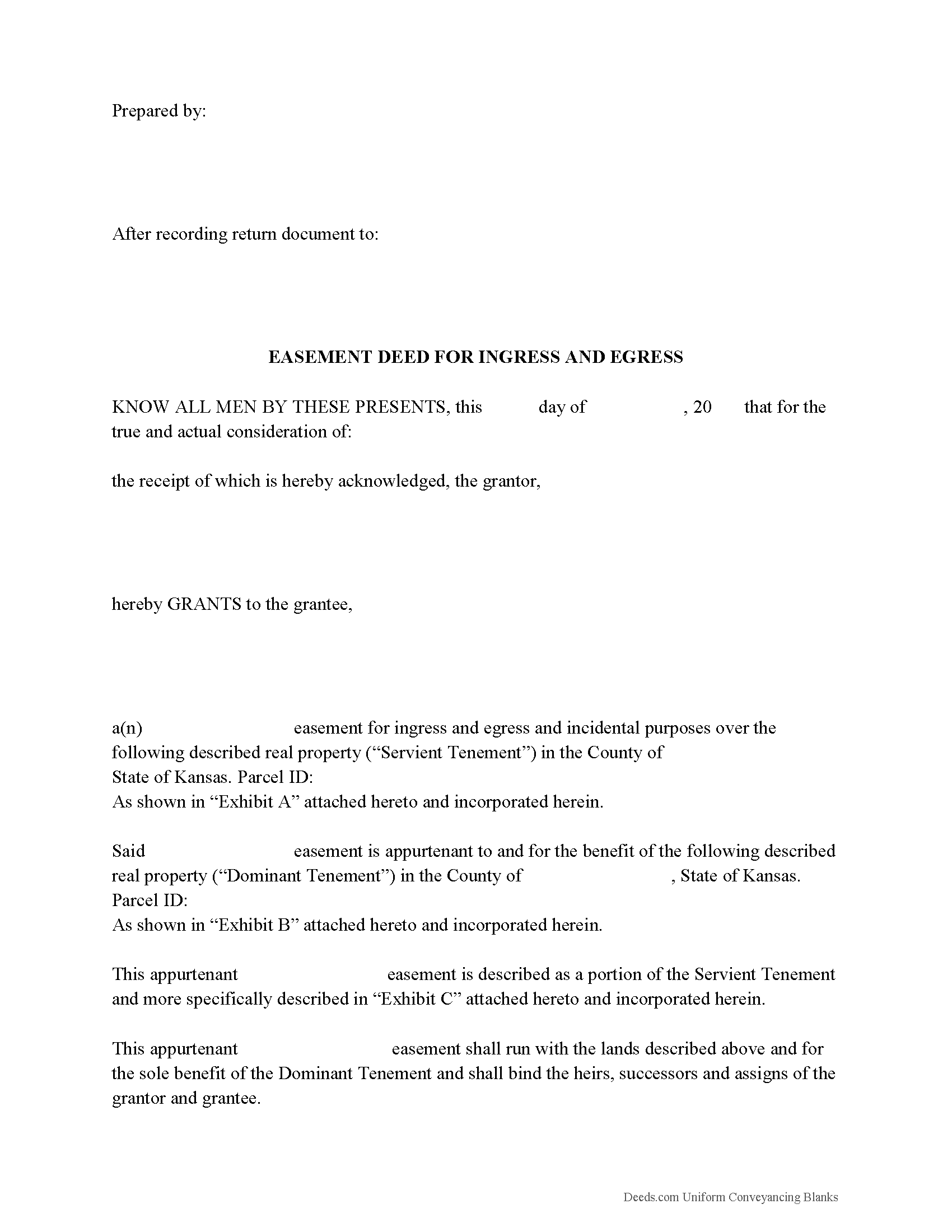Download Kansas Easement Deed Legal Forms

Kansas Easement Deed Overview

An easement is the non-possessory and non-ownership right of one person to use the real property of another person for a specific use. The specific instrument that creates such right is the easement deed. An easement deed in Kansas can be created for a variety of purposes: rights of way, access points, solar easements, and so on. Easements can be created by deed, by necessity, or by order of law.
Every instrument that conveys any estate or interest created by any lease or easement involving wind or solar resources and technologies to produce and generate electricity should include the requirements listed in section 58-2272 of the Kansas Annotated Statutes. Conservation easements are defined in 58-3810 of the Kansas Annotated Statutes. Easement deeds are subject to the recording and conveying rules of other real property instruments.
As a real property instrument, an easement deed must be signed and acknowledged by the grantor or by the grantor's agent or attorney in accordance with the uniform law on notarial acts and with KSA 58-2216 (58-2209). An easement deed should be acknowledged before a person authorized by the uniform law on notarial acts to perform notarial acts, or, if acknowledged in Kansas, by a county clerk, register of deeds, or mayor or clerk of an incorporated city (58-2211). If a grantor dies before acknowledging the deed or if for any other reason the grantor cannot be procured in order to make the acknowledgement or, if the grantor refuses to acknowledge the easement deed, the proof of the execution and delivery of the deed can be made by any competent testimony (58-2214). A certificate or proof of acknowledgement can be given under seal or otherwise, according to the method by which the courts or officers granting the same usually authenticate their notarial acts (58-2217).
An unrecorded easement deed in writing will be valid between the parties to the deed and those who have actual notice thereof, until it is recorded by the register of deeds in the county where the property is located (58-2223). An easement deed that has been certified and recorded in the manner provided by statute, will, from the time of filing with the register of deeds for record, impart notice to all persons of the contents of the deed; and all subsequent purchasers and mortgagees will be deemed to purchase with notice (58-2222).
(Kansas Easement Deed Package includes form, guidelines, and completed example)